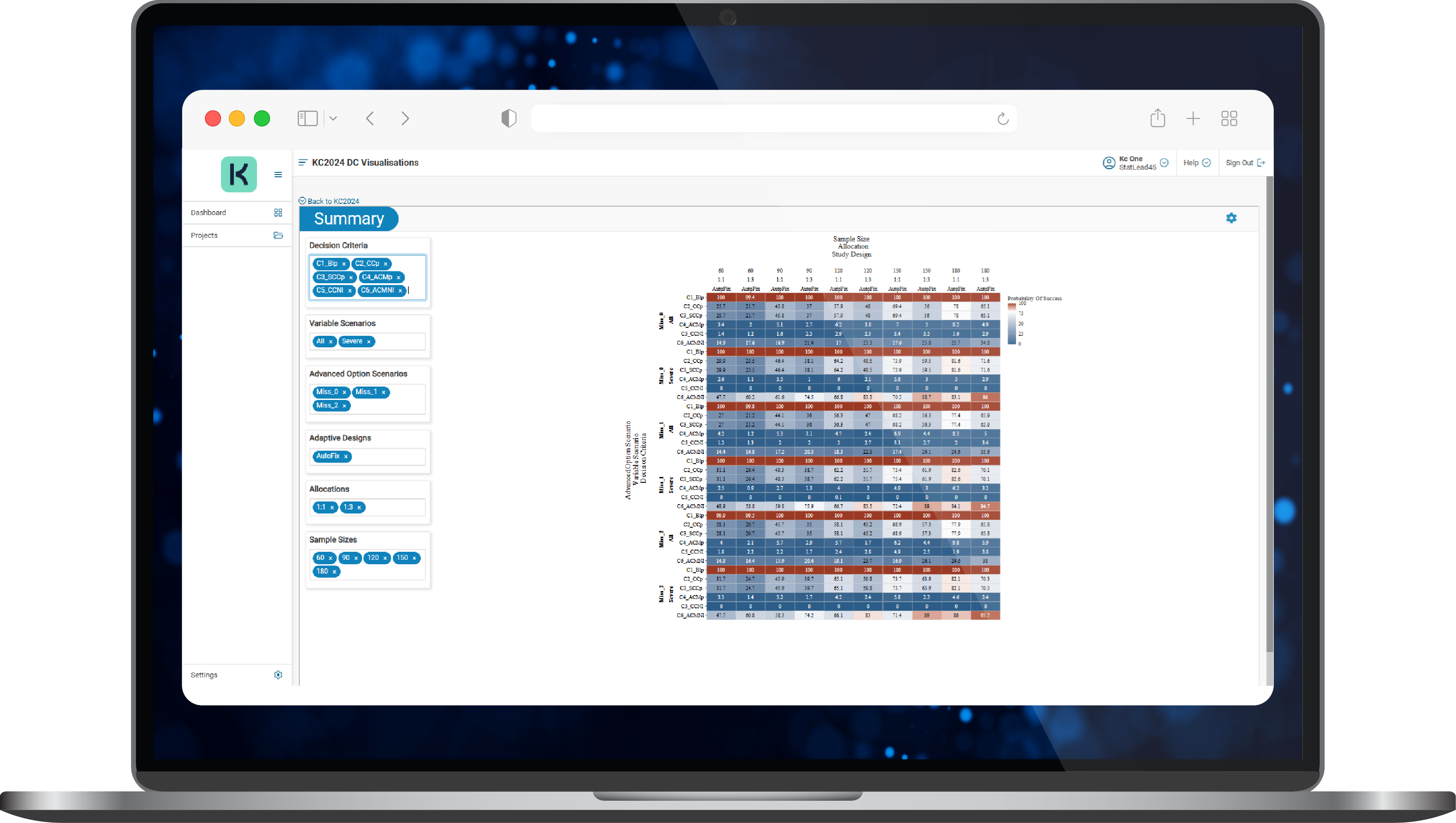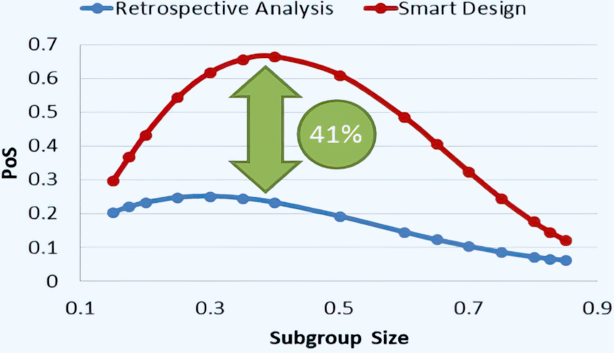Case Study
Effective precision medicine strategies with KerusCloud
KerusCloud is a revolutionary simulation-guided study design tool that ensures clinical trials are designed effectively to collect the right data, in the right patients, in the right way. Its use supports evidence-based design decisions to extensively de-risk real clinical studies, reducing development time, costs and patient burden.
The Challenge
A Phase IIb study in Alzheimer’s disease was completed, comprising 500 subjects randomised into 4 treatment groups receiving a placebo or 2mg, 4mg or 8mg of Rosiglitazone. Subjects were equally divided (1:1:1:1) with 125 subjects per group and the study was powered to detect a difference in all-comers.
The standard retrospective study following the failure of the main study to meet its primary objective involved:
- Using banked blood samples from around 60% of the study participants. This analysis did not form part of any prospective power calculations, so it was exploratory.
- The objective was to evaluate ability of numerous candidate genetic markers to explain the variability in response and ultimately to identify a predictive marker that could be used to progress the treatment in a genetic subgroup.
The Sponsor wished to use the data from this study to explore alternative options for how the probability of success (Pos) for Precision Medicine (PM) and Pharmacogenetics (PGx) Research could be improved using a smarter study design.
The Approach
KerusCloud was used to construct ‘what-if’ scenarios and evaluate the likelihood of success of the planned retrospective analysis versus the smarter prospective design where PGx was integrated into the design from the start. To do this statistics on the population response, characteristics within each treatment group were extracted from the published study data and additional information on the interaction between genetic markers, treatment and response was obtained from the literature. KerusCloud was used to simulate patient level data consistent with the published data and literature for two scenarios:
- Performing a retrospective analysis using the original study design.
- Prospectively designing a smarter study where PGx was integrated into the design.
For each scenario, the probability to detect a genetically defined subgroup of patients who derive a clinically meaningful benefit was evaluated. The outcomes of scenarios could be viewed using KerusCloud’s interactive heatmap (Figure 1).

Figure 1. A typical KerusCloud results heatmap
The Results
KerusCloud showed that:
-
- The original study design had a low chance of success (~20%) to detect a clinically meaningful subgroup.
- Increasing the sample collection rate could nearly double the probability of success (PoS).
- PoS could be further increased by reducing the number of treatment groups and implementing dose response models whilst maintaining the total number of subjects.
- Study success rate can be improved by as much as 41% without increasing sample size and cost (Figure 2).

Figure 2. The Probability of Success (PoS) for each scenario
The Impact
Prospective study planning with KerusCloud can:
- Dramatically increase the likelihood of study success over the retrospective approach alone and improve the chances of meeting study objectives.
- Rescue a development programme costing ~ £15-20M.
- Enable successful implementation of Precision Medicine Strategies.
Published in Drug Discovery Today, 2011; Preventive and Predictive Genetics, 2015.
“The early R&D for KerusCloud was specifically directed towards enabling precision medicine strategies within clinical development programmes. This study demonstrated the power of simulation in complex study designs and the results were used as a proof of concept. This supported the continued development of the software platform which ultimately became KerusCloud.”
CEO, Exploristics
Let’s talk!
If you’d like to discuss this case study further or learn more on how our technology enabled services can support your development project, please contact our VP of Sales & Marketing, Abbas Shivji, at abbas.shivji@exploristics.com or book a call.




